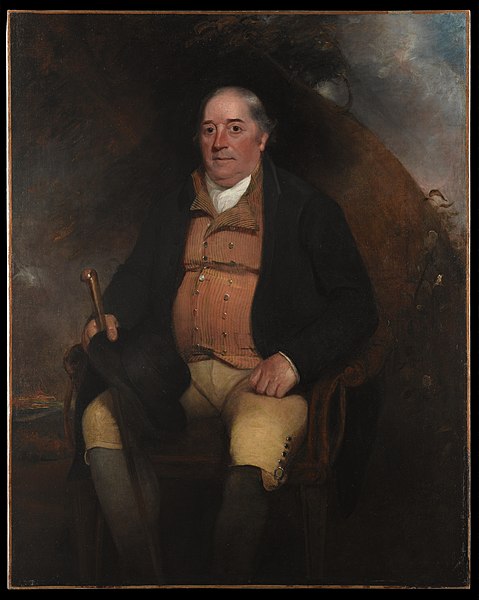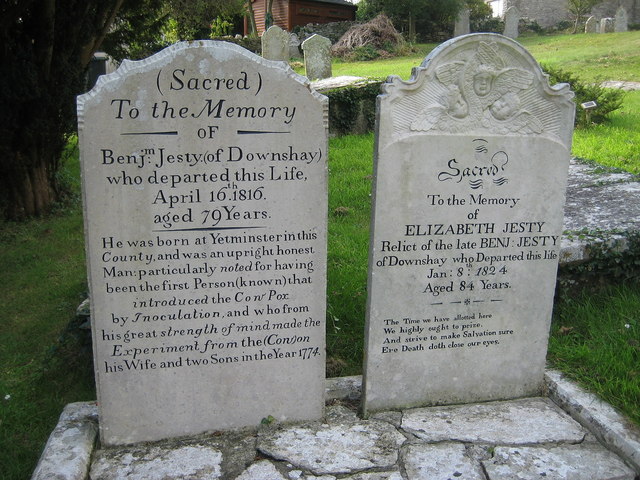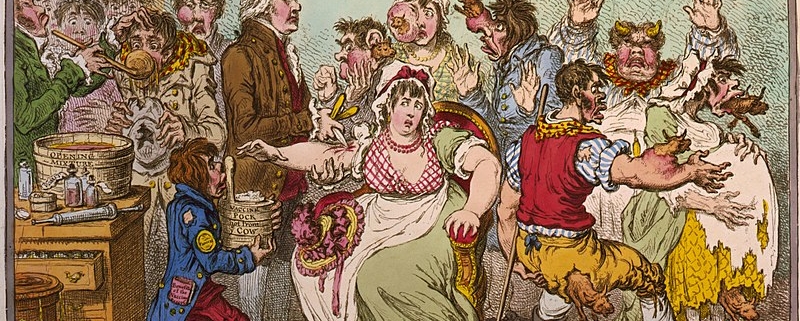The Unsung Dorset Pioneer of Vaccination Against Smallpox
With the next booster campaign of Covid vaccines due to begin on 05 September, it is perhaps worth revisit-ing the early days of the practice of vaccination to uncover a surprise or two. In 1796 Gloucestershire country doctor Edward Jenner inoculated his gardener’s 9 year-old son with serum taken from cowpox blisters on the hands of milkmaid Sarah Nelmes. The source of the infection was called Blossom, and as the Latin for “cow” is “vacca” Jenner coined the term “vaccination”. The boy became only mildly ill, and was later shown – and this was the truly dangerous part of the experiment – to be immune to infection with smallpox. This was an horrendous, disfiguring disease, endemic in Britain and likely to flare up in local epidemics with high mortality rates. Jenner confirmed his results with 23 other cases and published his findings in 1798. In 1802 he was granted £10,000 by Parliament, and £20,000 in 1807 after the Royal College of Physicians endorsed the practice of vaccination.
Jenner deserved these and other accolades for his providing scientific proof that inoculation with cowpox provided immunity against the much more virulent smallpox. He knew, as did many countryfolk, that cowherds and milkmaids who had caught cowpox from handling cattle were unlikely to succumb to smallpox. Benjamin Jesty (1737-1816), a farmer from Yetminster in North Dorset, had made the same observation. In 1771 and again in 1774 there were outbreaks of smallpox in the village. Jesty took his wife and two sons to a neighbour’s farm in Chetnole, and scratched fluid from a blister on the udder of one of the cattle into his wife’s forearm and the boys’ upper arms. Jesty himself had already had “the cow-pock” some years before. The boys were resilient but Elizabeth suffered from swelling and a high fever, before making a full recovery. A contemporary relative writes that villagers “began to regard Jesty as an inhuman brute, who could dare to practise experiments upon his family. The sequel of which would be (to turn them) into wild beasts. The worthy farmer was hooted at, reviled, and pelted whenever he attended the markets in his neighbourhood.” (Quoted by Andrew Norman on p35 of ‘Purbeck Personalities’). These would appear to be the attitudes being satirised by Gillray above.

By 1797 the Jesty family had moved to Purbeck, where the Rector of Swanage, Dr Andrew Bell, and his wife Agnes conducted a personal vaccination campaign in the spring of 1803. (Bell is best known for introducing the Madras System of pupil teachers and promoting a network of National Schools for the Education of the Poor in the Principles of the Christian Church. One such National School still existed in Bimport, Shaftesbury, in 1895 and featured in Thomas Hardy’s last novel, “Jude the Obscure”.) Bell decided that Jesty deserved some recognition as the first vaccinator and wrote on these lines to the Original Vaccine Pock Institute in London in August 1803. The outcome was a testimonial from the Institute “of our personal regard, and to commemorate a fact as that of preventing the Smallpox by inoculating the Cowpock 31 years ago, at our request a three-quarter length portrait of Mr Jesty is painted by that excellent artist Mr Sharp, to be preserved at the Original Vaccine Pock Institution.” (Norman, p36) If Benjamin Jesty appears somewhat uncomfortable in his rustic attire, it is because he was a fidgety sitter and had to be diverted by the piano playing of Mrs Sharp. Had it not been for the intervention of Andrew Bell, one suspects that the Jestys’ part in the development of vaccination would have disappeared almost entirely from the historical record.

Still on the theme of Vaccination, Dave Hardiman of Hilltop History writes about the enforcement of the 1853 Vaccination Act in Shaftesbury in 1897:
A law had been introduced, that required parents to ensure that all children were vaccinated against smallpox before they were 3 months old. There were some parents who were against vaccination and refused it. Sounds familiar.
In March, at the Shaftesbury County Court, a builder of Motcombe, named Alfred Harris, who held contrary views as to the efficacy and necessity of vaccination was fined £1-14s-6d (£260 today) for neglecting to procure the vaccination of his child. He demanded 12 months to pay, but the court refused this and told him that, if the payment was not forthcoming, the police would be granted permission to seize goods, which would then be sold at auction in order to pay the outstanding fine. Well, two weeks passed without the fine being paid and so the law was set in motion.
Much local interest was aroused at the prospect of an auctioneer selling Harris’s goods, and other anti-vaccinators proposed to assemble and give the auctioneer a hard time or, in common parlance at the time, ‘A warm welcome’. Interest grew and it was expected that the goods would be seized on Saturday morning, with the auction to follow. However, anticipating trouble, Inspector Elford despatched P.C’s Toop & Stickley early on Friday morning in a pony & trap to Harris’s address with a warrant to seize the goods. Harris was not at home, but his wife let them in, where they seized and conveyed away a couch and two chairs. They then met Alfred Harris on the road and told him that the goods would be sold by auction at the police yard at midday.
Harris notified his anti-vax friends and they and numerous others gathered in the police yard at the appointed time. No bids were forthcoming from the public and in fact Inspector Elford acquired them with a bid of £1-19s. Afterwards, a meeting of anti-vaccinators was held at the Commons, where Mr J.K.Rutter, Mr Collier (a Methodist minister) and the defendant denounced the Vaccination Act. A collection was made to recoup Harris’s losses and Inspector Elford agreed to sell the goods back to him for the price paid at auction, for which he was very grateful.
In August, more anti-vaccinators were fined. Thomas Burr, a horse dealer of Enmore Green, Sydney John Harris, a carpenter of Motcombe and Frederick Spinney, a blacksmith also of Motcombe, were each summoned to court for failing to have their children vaccinated within 3 months of birth. Mr Norton, the vaccination officer, reported that that all had been previously fined for refusing to have their children vaccinated and that none of them intended to pay. They each said that they refused to obey the law because they considered that vaccination had evil effects. They were now each fined £1 (£150).
Smallpox was declared eradicated by the World Health Organisation in 1980, after a sustained worldwide vaccination campaign.



